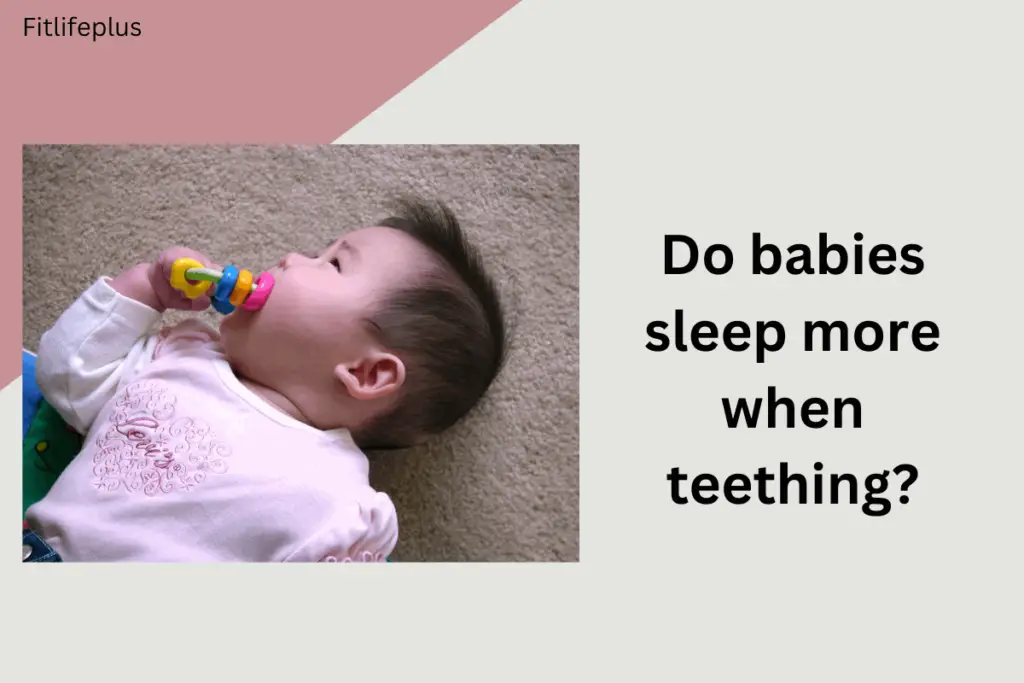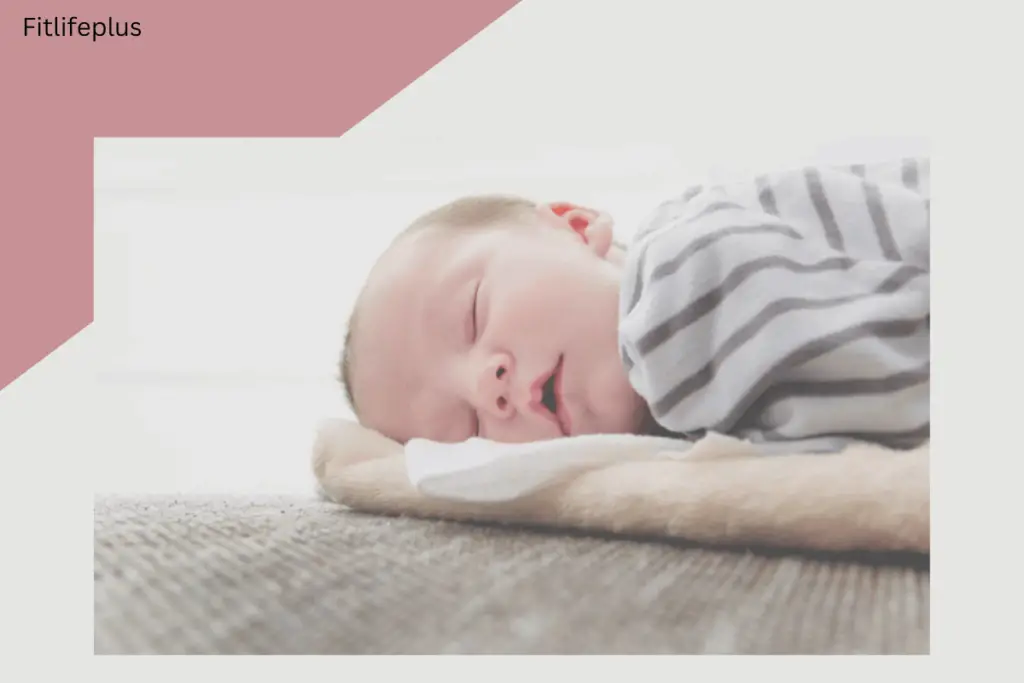Teething is one of the most apparent signs of growth and development of your baby in the initial years. It’s a vital stage of your child’s life with challenges. For parents and babies, teething means pain, crying, and drooling. But what about sleep? Do babies sleep more when teething?
Teething have a significant impact on your child’s life that makes the parents worried and frustrated at the same time. Teething is a little temporary challenge for both parents and babies. Between the growth and development, you will notice that your baby’s behavior with sleep is changing.
If you also wonder, “Do babies sleep more while teething?” here’s your detailed answer.
Symptoms

According to the research, many parents think teething can result in fever and diarrhea. But there is not much research to support the claims. Besides, your body sends many other signs indicating something is going on.
Here are some of the most common symptoms of teething:
- Swollen or painful gums
- Drooling
- Crankiness
- Chewing on solid things
- Irritation
Some babies escape this stage of their life without any pain or complaints. At the same time, some children have miserable reactions to the pain that even change with the teeth.
Does teething make babies sleep more?
Reviewing the above symptoms raises the central question: Do babies sleep more when teething? Or does their sleep become a lot less?
Generally, babies won’t sleep more during this period. If your baby is sleeping more while teething, then it may be a reaction to the symptoms. For example, fever during teething can make children tired and sleepy.
According to the American Academy of Pediatrics, the uncomfortable and painful feeling due to teething can wake your baby up. In addition, if the parents change the daytime and nighttime routines, it can result in improper sleep.
Other reasons your baby is sleeping more
If your baby is sleepy most of the time, it may not be because of the teething. Here are some other reasons why your baby may start sleeping more.
Illness
It’s common for babies to get a cold and viral illness in the first year. It’s because they are building up their immune system. Viruses can make babies sleep more when they are still in the recovery face.
Growth spurt
In the first year, babies grow a lot. They usually sleep a lot more before their growth spurt. Growing baby starts using their voices, discover their hands and feet, and their muscles gain the strength to crawl and sit. These things use a lot of energy that can affect their sleeping schedule. But these effects only affect the sleep for a few weeks.
Vaccination
You will observe that the baby will start sleeping more after the vaccination. According to research in 2011, they sleep around 69 more minutes than usual after their two-month vaccination during the 24 hours before the vaccination.
It can happen when the vaccines trigger the immune response. It generally occurs when the vaccines start the immune response and cause the body to act like its fighting the illness.
Sometimes sleeping more is generally a part of their growth and development. For example, during the 4 to 6 months, the babies start sleeping more hours.
How to help a teething baby sleep?

If your kid is facing issues with sleeping due to teething, here are some of the best ways to soothe them to get rest.
- You can give your children a cold teething ring or a washcloth to chew them. The cold of things will help in numbing the gums and providing relief.
- Maafe your baby gums with your finger and put a little pressure on them.
- Keep cleaning the droll off your baby’s face, as it can sometimes result in rashes. You can get help from the bibs during this period.
- If your baby is in pain, you can use the pain medicine your pediatrician prescribes.
- You can use a mesh bag, a cold carrot, or a cold cucumber to dig the gum on these cold vegetables for relief.
The silicone teether can be very helpful when chilled in the refrigerator. I get help from the silicon teethers for my twins. My daughter was in extreme pain, so my pediatrician prescribed a low dosage of Tylenol to help her ease.
Can I sleep train when my baby is teething?
We all would prefer avoiding teething when we are in the process of teaching our baby a new skill. Preparing your baby to sleep with a pacifier, rocking, or feeding is essential. But according to the experts, the best time to sleep train a baby is when there are the minimum amount of active variables.
The variables are life changes, teething, and motor development. However, the chronic teething will only continue for a few months, and you will ultimately reach a point where you and your baby only need sleep.
Besides, acute teething is a little more painful than chronic teething. Acute teething only lasts one to two days, so it’s best to avoid these two days and then go for it.
Also read: How long does teething last?
FAQ’s
Do babies sleep more when teething?
Yes, babies sleep more while teething, but it’s probably not due to the teething but its symptoms. The fever due to the teething can make the babies tired, due to which they sleep more than often. Besides, the experts say that teething can result in improper sleeping but not more.
Why is my baby suddenly sleeping more?
Sleeping more is not a reason to get worried, as it can be a healthy sign of a growing body. They may also grow at the general rate, but they can sleep more than usual due to their vaccination, illness, or growth spurts.
Which age teething is worst?
For some reason, stage two teething is painful for most children. The large molars emerge during this stage, and these are the most prominent teeth. Many parents find that effective soothing techniques to be failed during this stage.
Conclusion
Babies go through a lot of changes in their first year. Teething is a significant milestone in the life of a growing baby. It’s normal to get worried about your precious ones when they are not acting casually.
Don’t worry; this is a temporary stage of their life and will never pass. At the end of the pain and struggle, your baby will have a beautiful smile.



